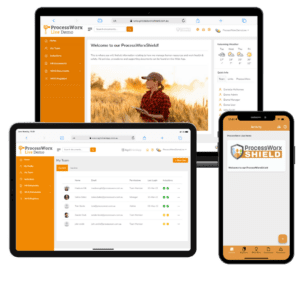Exit interviews can get a bad rap as a human resource strategy, after all why waste time on someone who is leaving your business? However, exit interviews can be an incredibly effective tool when used correctly to gauge your company’s culture, retention and outcomes of your workforce management strategy.
What is an exit interview?
An exit interview can be a formal or informal conversation with an employee asking them about their reasons for moving on and what could have improved their experience in your business. Exit interviews are best conducted privately with the HR manager and exiting employee. Be mindful that your employee may be emotional about leaving so conduct the interview with tact and diplomacy. Avoid using the interview as an opportunity to “air dirty laundry” as this can increase the likelihood of the employee feeling bitter or resentful about leaving your business.
Employees can have a variety of reasons for moving on, the six most common reasons are:
- Pay: Employees leaving for more competitive remuneration.
- Management: Employees leave because they dislike a manager or management style.
- Flexibility: Employees may leave for a position with better work-life balance e.g. remote working, allowance of caregiving responsibilities or flexible start and finish times.
- Location: Employees may leave for a job that is closer to them reducing their commute.
- Health: Employees may leave because of health reasons, finding a position that better suits their medical needs.
- Growth and development: Employees may leave because they don’t see career advancement or progression opportunities.
Why conduct exit interviews?
Your intention behind conducting exit interviews plays a key role in when to conduct them and how to use the feedback collected.
The intent for an exit interview can vary, from investigating high position turnover to determining how to retain valuable employees. However, it is crucial to establish what you hope to get out of it at the beginning as this guides the rest of the process. Your reason for investigating employee exits will inform the questions you choose to focus on in the interviews.
Common reasons for conducting exit interviews include:
Understanding why people are leaving
If there is a pattern of employee exit, it could be important for your business to investigate why this is happening. For example, this may be due to higher pay offered by other companies for the same roles. This information can be used to shape your HR strategy moving forward. Do you need to offer other non-monetary incentives in your business? Do you require salary benchmarking for positions with high turnover? Or explore a wider remuneration restructure if pay is a frequent reason for employee exit business-wide?
Exit interviews can also be used as a tool to gauge competitors’ remuneration.
Retaining employees
Exit interviews can be as a tool to retain specific employees or your workforce more generally. For example, holding an exit interview with a highly skilled employee may reveal their primary reason for leaving is a change in caregiving responsibilities and the requirement for flexible working arrangements. With this information, your business can consider the value of offering flexible arrangements to accommodate the employee’s needs to retain their skills and knowledge.
If you are looking to improve the retention of your workforce more broadly, exit interviews can be used to gauge satisfaction levels in your business such as; work environment, support and feedback from managers, work pressure, training and development opportunities, company culture and level of responsibility. This feedback should be considered as a part of your broader HR strategy.
Reporting
Some businesses may use exit interviews to report and analyse similarities between employees who have left to determine if patterns exist. If one role in your business has a higher turnover than others e.g. having difficulty hiring and retaining reception staff, it may be worth investigating the position description and working to clarify the role. Other businesses may be required to use exit interviews for mandatory reporting on the types of employees leaving for equal opportunity compliance.
When to conduct an exit interview?
Relevant businesses may be required by law to conduct exit interviews for all employee exits to gather data for Workplace Gender Equality Act (2012) reporting obligations. This is typically for larger businesses, who are required to contribute to the dataset on gender equality in Australian workplaces.
For small to medium businesses, for operational efficiency, exit interviews may be more often conducted for senior positions, high turnover roles or if there is a pattern of employee exits, to investigate reasons for leaving. We recommend using this information to inform your broader human resource strategy and employee retention.
However, there is no legal requirement to conduct exit interviews in small businesses and it is not recommended if you employ a large casual workforce.
ProcessWorx Human Resource Consulting
Managing employees throughout their lifecycle with your business is an important HR function and includes handling their exit gracefully. An exit interview can be an effective strategy to do so and will help impress your employee with a positive experience of your business.
In these circumstances, if you experience any of these issues, ProcessWorx can assist by providing advice and assistance with; conducting exit interviews, salary benchmarking reviews, employee benefits program development, retention strategy development, flexible working arrangements, and management coaching.
In the current employment market, organisational culture and retention have never been more important. Working with ProcessWorx Human Resource Consultants can help your business reach its goals and become an employer of choice!
With over 10 years of experience working with diverse businesses, ProcessWorx understands the unique complexities of organisations and can provide personalised HR services. If you would like HR assistance, please contact ProcessWorx HR consultants on (08) 9316 9896. Our expert team will be happy to help you develop your business in this area.
Follow ProcessWorx on LinkedIn, Facebook, Instagram, YouTube, and Twitter to keep up with the latest HR and Safety news.






